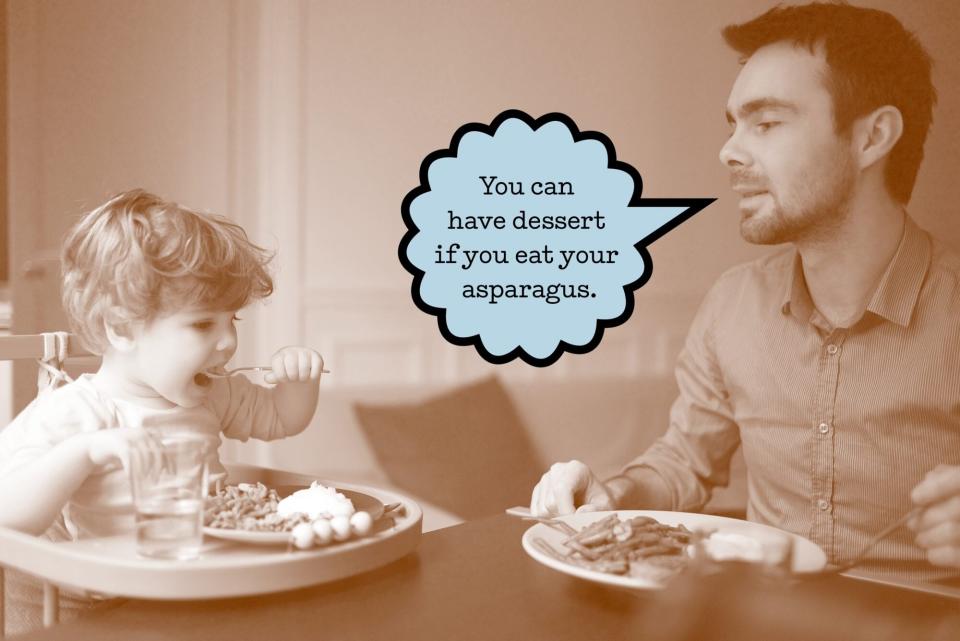5 Things You Shouldn't Say To Your Kids At The Dinner Table
The messages you give your children about food can have a powerful effect, so make sure you're sending the right ones. Here are five statements to avoid at the dinner table.
1. "You can have dessert if you eat your asparagus."
No foods (including dessert) should be offered as a reward or withheld as a punishment. Not only does it elevate dessert to super-special status, but it sends the message that you have to eat the "yucky" stuff to get to the "yummy" stuff.
When serving dessert, all family members should be given the choice to have it, regardless of how much they ate during dinnertime. If your child only wants to eat dessert and no actual dinner food, try making dessert an occasional treat. You can also try serving dessert with dinner; the idea may sound crazy, but it works for some kids.

Illustration by Parents Staff; Getty Images (1)
2. "You're so picky."
Placing any kind of label onto your child isn't helpful, since it can internalize certain assumptions. For example, a kid who's been called "picky" might constantly think, "I don't like a lot of foods and I'm afraid to try new things." They might act in a way that lives up to their label.
3. "Eat five more bites of chicken and three more bites of peas."
Parents say these phrases with the best intentions: You probably don't think your child has eaten enough of the "good" stuff, and you're attempting to make his meal more healthy, balanced, and nutritious. But moms and dads should never dictate how much children have to eat (would you like if someone did that to you?). This behavior could make a child think he always has to keep eating—even if he's full—and it could lead to obesity or disordered eating in the future.
4. "You wouldn't like it."
Even if you're 99 percent sure your child won't like something, never discourage her from trying it anyway. It's fine to give a heads-up that something is spicy. Otherwise, be open and encouraging. You're helping your kid to be more adventurous and curious in the long run.
5. "You have to try it."
The "one-bite rule" works great for some kids, since it might encourage them to try things they wouldn't otherwise. But for other kids, it can create a battle at the dinner table. It can also lead to food aversions, picky eating, or negative relations to new foods.
Sally Kuzemchak, MS, RD, is a registered dietitian, educator, and mom of two who blogs at Real Mom Nutrition. You can follow her on Facebook, Twitter, Pinterest, and Instagram. She is the author of Cooking Light Dinnertime Survival Guide, a cookbook for busy families. In her spare time, she loads and unloads the dishwasher. Then loads it again.
Strategies for Picky Eaters
Mealtime becomes a struggle when your little one has a very discerning palate. Learn how to handle a picky eater and some reasonable guidelines for what you should expect your child to eat.

